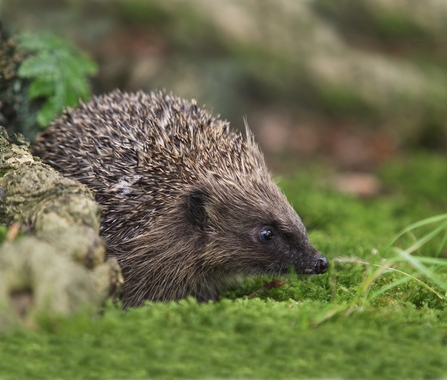
Hedgehog. Image by: Paul Hobson.

Hedgehog. Image by: Paul Hobson.
A new report from The Wildlife Trusts reveals how restoring nature, at a time when it has never been more degraded can bring wide-ranging benefits to society, help reach net-negative carbon emissions and rebuild the economy following the pandemic.
The report, titled A Wilder Recovery, argues that taking a transformational approach to putting nature at the heart of a sustainable, green economy, will create more jobs, ensure that land and sea are properly managed for the long-term, enable people to live happier, healthier lives, and restore our much-depleted natural world.
A Wilder Recovery says that there has been a failure to recognise the vital role that nature plays in our society and economy – and that this must be urgently addressed with a £1 billion per year funding package to restore nature at scale.
Government spending on biodiversity has shrunk by 33% over five years even though big promises have been made to restore 30% of land for nature by 2030. Defra’s funding is inadequate to tackle the size of the task ahead, and other Government departments are doing little to help reach this target either. Worse still, some Government proposals such as planning reforms, threaten to damage our natural world even further.
The Wildlife Trusts believe that all areas of Government - locally and nationally- can benefit from working with nature, as well as helping it to recover. For example:
In this region, Mike Pratt Northumberland Wildlife Trust Chief Executive says: “Ultimately, our economy is a wholly-owned subsidiary of nature and not the other way around. Everything we hold dear - our health, homes and livelihoods - depends on what nature provides. It’s time we recognise this and behave accordingly.
“Nature is our strongest ally in building a resilient recovery after Covid19 - but for too long decisions have come at the expense of the natural world, and the amount we spend on activities which damage nature still far outstrips our spending to restore it."
Nationally, Craig Bennett, chief executive of The Wildlife Trusts, says: “We must halt old-fashioned business-as-usual, and stop wasting public money on the polluting infrastructure of the past, such as £27 billion on new roads, and invest instead in green infrastructure. This means restoring wild places for wildlife, flood prevention, storing carbon, and to improve our physical and mental wellbeing.
“Rather than proposed measures to weaken our planning system, we need it strengthened so that it stops badly planned developments and rewards good development that protects and enhances nature and improves peoples’ lives. The next ten years must be a time of renewal, of rewilding our lives, of green recovery - not just more of the same old thinking that perpetuates our current mess.”
A Wilder Recovery - how to build back smarter, stronger, greener includes contributions from Richard Walker, MD of Iceland; Alex Willey, Director at Clarion Homes; and Dr Amir Khan, GP and TV presenter.